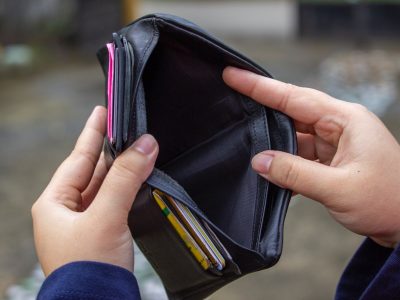The Justice Department Indicts 60 Care Providers for Illegally Dispensing Opioids
Sixty people have been indicted for prescribing or participating in the prescribing of 32 million opioids, including doctors that allegedly traded opioid prescriptions for sex and/or cash. According to official court documents, over 350,000 illegal prescriptions were written in Alabama, Kentucky, Louisiana, Ohio, Pennsylvania, Tennessee and West Virginia, some of the states hit hardest by the nation’s ongoing opioid epidemic.
Shortly after the charges were announced, an assistant attorney general in charge of the Justice Department’s criminal division gave an interview stating that these numbers are “the equivalent of one opioid dose for every man, woman and child in the region. If these medical professionals behave like drug dealers, you can rest assured that the Justice Department is going to treat them like drug dealers.”
Learn more about the latest round of criminal charges in the opioid epidemic and how prosecutors are bringing these perpetrators to justice:
What the Charges Entail
The case implicates a wide variety of medical professionals throughout the seven states listed above, including those prescribing the medication and those that helped facilitate the process. Those that have been indicted include:
- 31 doctors
- 7 pharmacists
- 8 nurse practitioners
- 7 other licensed medical professionals
The charges include unlawful distribution or dispensing of controlled substances by a medical professional and healthcare fraud. Some defendants have been charged with multiple counts and each count carries a maximum 20-year prison sentence. One doctor from Tennessee is also being charged in connection with an opioid-induced overdose in the state.
In some of these cases, physicians allegedly provided prescriptions for opioids like oxycodone and hydrocodone in exchange for sexual favors. Some doctors told their patients to fill their prescriptions at different pharmacies to help cover their tracks. One doctor ran a pharmacy out of his office so his patients could fill their prescriptions immediately following a routine exam. Some patients even traveled to different states to receive and fill prescriptions from several different physicians. One dentist even pulled out a patient’s teeth unnecessarily so they could obtain a prescription for opioids. The patient then paid the dentist in cash.
One doctor described himself as the “Rock Doc”, prescribing dangerous combinations of pills in exchange for sexual favors from patients. Over the course of three years, the Rock Doc allegedly prescribed nearly 500,000 hydrocodone pills, 300,000 oxycodone pills, 1,500 fentanyl patches and more than 600,000 benzodiazepines. Another doctor allegedly recruited prostitutes as patients and allowed them to use opioids in his home. Still another doctor charged individuals an annual “concierge fee” of $600 just to be his patient.
In another case, a nurse in Pennsylvania wrote fraudulent prescriptions for oxycodone in her name and in the names of others to obtain pills for personal use.
How Prosecutors Carried Out the Investigation
In recent years, the Justice Department has been cracking down more on opioid manufacturers and healthcare providers who prescribe the drug. According to department officials, prosecutors charged 162 defendants last year, including 76 doctors, for prescribing and distributing opioids and other dangerous narcotics against the best interests of their patients.
The Justice Department created the Appalachian Regional Prescription Opioid Strike Force in 2018 to focus on one of the hardest hit areas of the opioid crisis. The task force analyzed several healthcare databases in search of suspicious opioid-related activity. Once the targets had been identified, investigators sent confidential informants and undercover agents to medical offices across the region as part of a sting operation. They used hidden cameras and tape recorders to gather evidence, catching these perpetrators in the act.
As these cases play out in court, prosecutors are striving to maintain what they describe as “continuity of care”, making sure patients who have been impacted by these cases still have access to the care they need. While some patients may be without a care provider and others may be going through withdrawal, these doctors and care providers can no longer use their medical expertise for financial and personal gain in this manner.
These cases represent just one more chapter in the long fight to end the opioid epidemic. Hopefully, after reviewing the details of these cases, care providers across the country will learn that crime doesn’t pay.

















